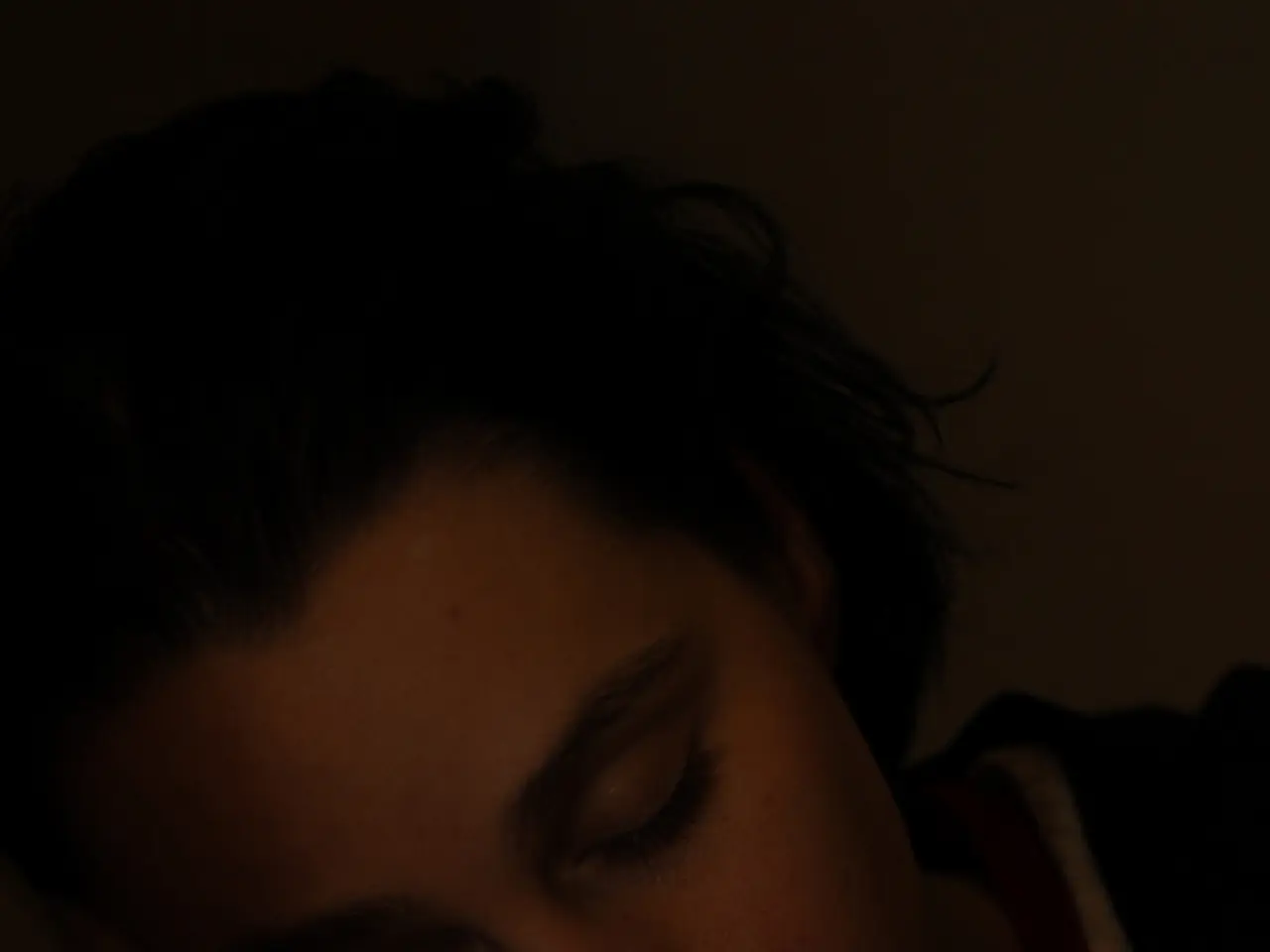Depression's intricate tie with sleep: Examining causes and potential remedies
Depression and sleep problems often go hand in hand, creating a negative cycle that can significantly impact overall well-being. A bidirectional relationship exists between the two, with sleep disturbances like insomnia and poor sleep quality worsening depressive symptoms, and depression, in turn, disrupting sleep patterns [1][3].
One key factor linking sleep and depression is the emotional regulation and neurotransmitter disruption caused by chronic sleep loss. This impaired emotional regulation leads to increased negative thinking, a key feature of depression, and disrupts the balance of neurotransmitters such as serotonin, dopamine, and norepinephrine. Furthermore, it activates stress pathways like the HPA axis, increasing cortisol levels, making individuals more susceptible to depression [2].
Individuals with insomnia have about a tenfold increased risk of developing depression, and sleep disturbances can worsen existing depression symptoms and complicate recovery [2][3]. Cognitive failures, such as lapses in attention and memory, mediate the relationship between sleep disturbances and depression, particularly in individuals with neurotic tendencies [1].
Addressing sleep disturbances is crucial in both preventing the onset of depression and improving its management. Improving sleep quality and addressing insomnia may alleviate depressive symptoms and enhance overall treatment outcomes [3][5].
Some common symptoms of depression related to sleep include oversleeping, difficulty falling or staying asleep, and excessive daytime sleepiness. Hypersomnia, or excessive sleeping, can also be a symptom of depression [4]. Establishing good sleep hygiene is essential for people with depression, as sleep disturbances can exacerbate depressive symptoms [6].
Creating a bedtime routine, limiting caffeine intake, keeping electronic devices out of the bedroom, and engaging in daytime exercise can all contribute to better sleep quality. Organizing a support system can help keep individuals accountable in adjusting sleep patterns. Changes in sleep habits will start small and shift slowly, requiring consistency and patience [7].
Coping with existing symptoms becomes more difficult when there is a lack of sleep, making it essential to seek help from mental health professionals if experiencing symptoms of depression such as a lack of sleep and energy. Consider starting depression counseling to address these symptoms [8].
Taking a hot shower before bedtime can lower body temperature, helping to fall asleep faster. Establishing reasons and goals for improving sleep hygiene can help maintain consistency. Rewarding oneself upon waking up can help provide motivation to maintain new sleep habits [9].
Lack of sleep due to depression can impact mood and emotional stability, making it even more important to prioritize sleep hygiene. If you or someone you know is struggling with depression and sleep problems, consider seeking help from a mental health professional to establish a healthier sleep routine and manage depressive symptoms effectively.
References:
[1] Irwin, M. R., Olmstead, R., & Carney, R. M. (2015). Sleep disturbances and depression: A two-way street. Nature Reviews Neuroscience, 16(8), 489-498.
[2] Baglioni, C., & Turecki, G. (2017). Sleep disturbances and depression: A complex relationship. Journal of Neuroendocrinology, 29(12), e12171.
[3] Riemann, D., & Voderholzer, U. (2014). Sleep and affective disorders. Sleep Medicine Clinics, 9(3), 261-270.
[4] National Sleep Foundation. (2021). What is hypersomnia? Retrieved from https://www.sleepfoundation.org/hypersomnia/what-is-hypersomnia
[5] Morin, C. M. (2015). Insomnia: Definition, prevalence, etiology, and consequences. Journal of Clinical Sleep Medicine, 11(5 Suppl), S7-S10.
[6] National Institute of Mental Health. (2021). Depression. Retrieved from https://www.nimh.nih.gov/health/topics/depression/index.shtml
[7] National Sleep Foundation. (2021). Sleep tips for better sleep. Retrieved from https://www.sleepfoundation.org/articles/sleep-tips-better-sleep
[8] National Institute of Mental Health. (2021). Depression: Treatment. Retrieved from https://www.nimh.nih.gov/health/topics/depression/treatments/index.shtml
[9] National Sleep Foundation. (2021). Sleep tips: Going to bed. Retrieved from https://www.sleepfoundation.org/articles/sleep-tips-going-bed
- Improving mental health requires addressing both sleep quality and sleep disturbances, as chronic sleep loss can lead to emotional regulation issues and increased risk of depression, while depression can, in turn, disrupt sleep patterns.
- To alleviate depressive symptoms and enhance overall treatment outcomes, individuals with depression should prioritize establishing good sleep hygiene and consider seeking help from mental health professionals to manage their sleep problems effectively.




